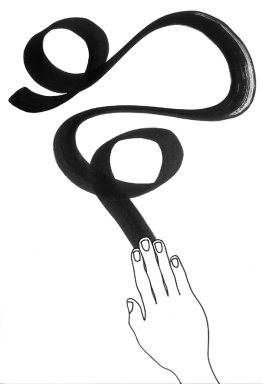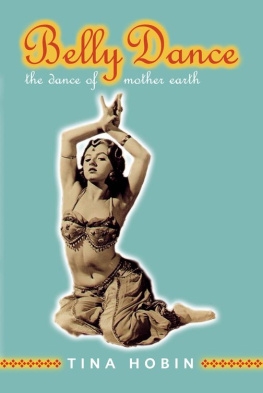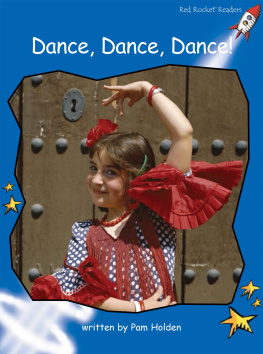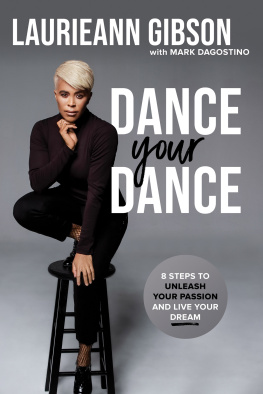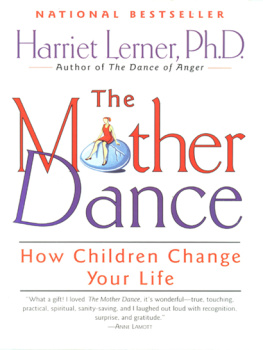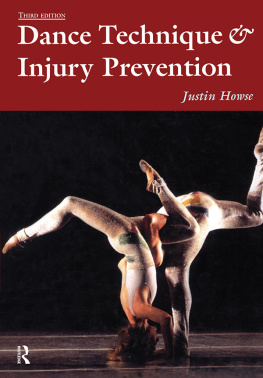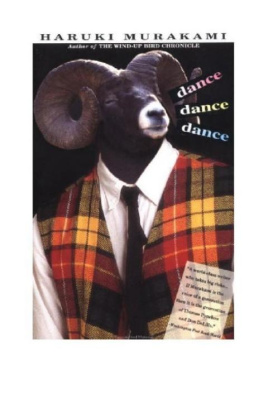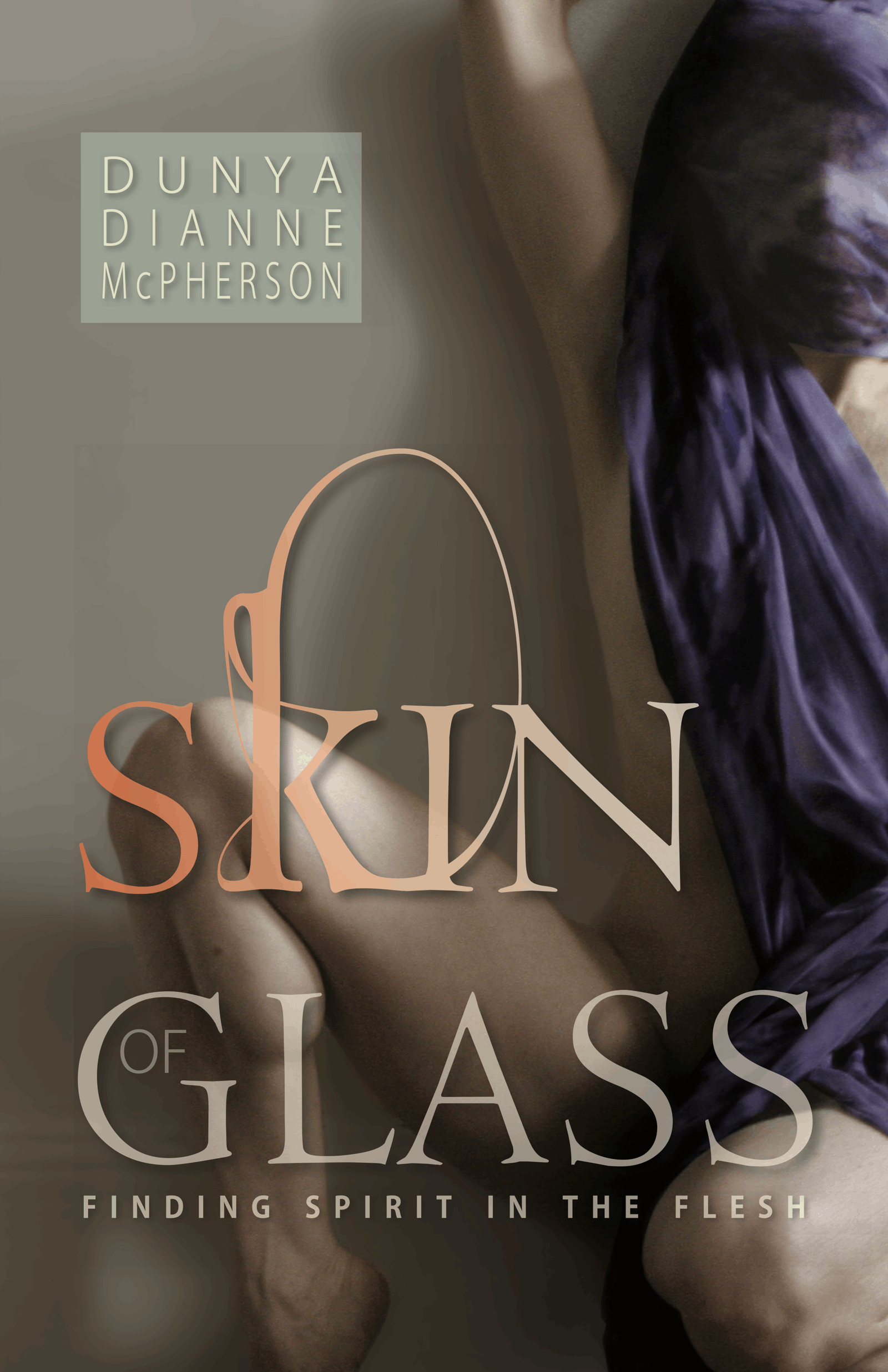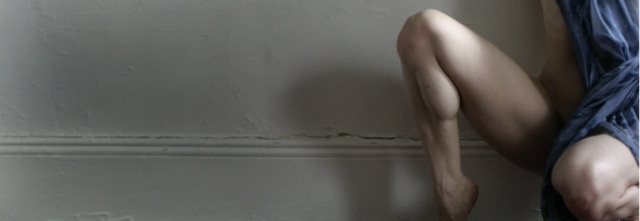Praise for Skin of Glass
Memoir, prose poem, erotic journey, mystical discourse and cultural commentaryDunyas brave book also launches a new genre of writing from the body. It is a book sorely needed by a culture disembodied by fascination with electronic devices. Dunyas sensuous writing will draw you in from page one. You will travel inside her body, within her shadows and glory, as she recounts her spiritual quest. The urge to devour this book for its content is almost irresistible. But youll receive more from Skin of Glass, if you read slowly enough to let the authors rich language fire your neurons and seep into your flesh and blood.
Mary Bond, MA, author of Balancing Your Body, & The New Rules of Posture
Dunyas writing heals like a tribal trance dance. This is mysticism for New Yorkers: non-fluffy, erotic, and startlingly honest.
Ruth Vincent, The Villager, NYC
If you have ever longed to dance, if you have danced, if you are a seeker, this book will touch you and open your awareness to the majestic inner landscape of our being.
Laurienne Singer, MA. Dance Faculty, Los Angeles City College
Dunya eloquently expresses how exploration of body aware- ness opens doors to understanding, not just of movement and skill, but also about the essence of being. Hers is a searing story about negotiating between life in an exotic enclave of rarified mystical practices and life in the real world, where the search for love and healing is no less mysterious. Her tale offers in- sights and inspiration on every page.
Christopher Pilafian, Lecturer, Department of Theater & Dance, University of California, Santa Barbara
Skin of Glass integrates narrative memoir with an almost microscopic focus on individual parts of the body (eyes, legs and crotch, spine, ovaries) in a way that does justice to the particularity of each subject area while also deriving rich and resonant literary metaphors for each of these bodily stations. In fact, one has to return to Elizabethan conceptions of the body politic to find such ambitious use of the body-as-literary metaphor. Dunyas writing moves effortlessly from the particularities of subjective sensation to a more objective and generalized meditation on the significance of those somatic experiences. These are profound ideas, expressed in startlingly evocative language.
Roger Copeland, author of Merce Cunningham: The Modernizing of Modern Dance
Dunya uses her gift of language, detailed observation, and memory to inhabit landscapes and mirrors inside body and soul. Her focus on being embodied, awake, and fluid shows hope of the creative process married to the mystical journey. This book is a generous gift of compassion, support, and steadfast presence.
Bernadine Jennings, Attitude: The Dancers Magazine
First Dancemeditation Books Edition, 2008
Dervish Society of America e-Book Edition, 2021
Skin of Glass
Copyright 2008 by Dianne McPherson
All rights reserved under International and Pan American Copyright Conventions. By payment of the required fees, you have been granted the nonexclusive, nontransferable right to access and read the text of this e-book on-screen. No part of this text may be reproduced, transmitted, downloaded, decompiled, or stored in or introduced into any information storage and retrieval system, in any form or by any means, whether electronic or mechanical, now known or hereafter invented, without the express written permission of Dervish Society of America.
Library of Congress Control Number: 2008901110
ISBN: 978-0-9801986-1-4
Cover photo: Monica Aspe Veil: Rebecca Farr
Author portrait: Paul B. Goode
Cover Design: Nisaa Christie, DDMcPherson
for
Joan and Mac
and
for Ric
Introduction
In our culture, a subject becomes real once it is written. I knew from experience that dance was a spiritual patha real pathbut after hunting through the written literature of spiritual autobiography, dance, and memoir, I came up short. No one had written this journey, or at any rate, published their experience. I had a task.
Once launched, the project became a bit of a Mount Everest. How could I verbalize experience that is wholly nonverbal and evanescent? What frames the magnitude of sensorial geography? In reading This Cold Heaven, Gretel Erlichs wonderful account of traveling in northern Greenland, I sensed a way to attempt this endeavor: I would approach my body as if she were a landscape, traversing her wild terrain with my journal and my perceptions.
At the outset, I worked at conveying the sensation of liv- ing in the body. Capturing the dreamy pastiche of embodied experience required nestling words close to motion; I decided to journal at the finish of my daily movement practice when bodily sensation was fresh and easy to retrieve and, later, let reflections unwind. I had initially imagined that the written form would coalesce into a manageable collection of essays, an idea that soon fell away as my process developed. Besides sensation, my body surprised me with an arresting narrativeshe wanted to tell a story, tell me secrets Id kept hidden from my mind. This became a tumultuous research, and wording it felt like translation, stretching and tucking syntax, language, and grammar around the sweep and grind of bone and dance.
Memories of childhood body experiences, dance training, and Sufi study emerged at first as flashbacks. Fleshing these out into full memoir chapters introduced me to that messy magic memoirists invariably comment on. I watched my dim, uncertain, half-recollections harden into solid amber which I knew they didnt deserve, yet could find no better way to pen the journey. Remembering and writing memory has made me a more defined being. At the same time, since finishing this work I have, for the first time, been able to forget.
In her introduction to Long Quiet Highway, Natalie Goldberg describes a group of zen monks whose rigorous practice brings them near death, because they understood that spiritual waking takes tremendous effort. She wanted her readers to know that any practice, including writing, requires sincere commitment. Writing this piece forced me to disembowel episodes I had never wanted to publicly speak of, let alone go on record. More than that, it made me strive for authenticity not only in movement, which was easier for me, but in my words as well. Only truth is right. Years of nonverbal meditation practice had taught me the difficulty of digging for ones truth; writing this piece folded memory and thought into that striving.
To say that I love the increasingly exquisite journey my body uncoils before me is inadequate and inaccurate. This is better: my body is the exquisite journey. Love is not relevant, only waking iswaking before she leaves.
Mirror, mirror on the wall,
whos the fairest of them all?
Chapter 1
Blue Eyes
Cape Cod ~ 1950s


